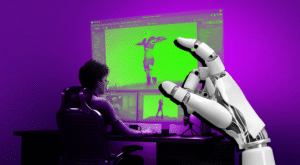At the devcom Developer Conference 2025 in Cologne, Google Cloud unveiled new research conducted with The Harris Poll that underscores the rapid adoption of generative AI in the global gaming industry. According to the study, 90% of game developers are already integrating AI into their workflows, with nearly all respondents (97%) agreeing that the technology is reshaping the industry.

AI Adoption in Development Workflows
The survey, which gathered insights from 615 developers across the U.S., South Korea, Norway, Finland, and Sweden, highlights AI’s role in automating repetitive tasks (95%), accelerating playtesting and balancing (47%), and supporting localization, translation, and code generation. Developers report that AI integration is freeing up time for strategic and creative innovation.
Driving Creativity and Innovation
Beyond efficiency, AI is fueling new possibilities in dynamic level design, dialogue writing, and animation. Nearly 37% of developers say they are experimenting with fresh gameplay concepts enabled by AI, while 36% cite increased flexibility in creative exploration.
Transforming Player Experiences
AI is also changing what players expect from games. Developers observe rising demand for smarter, adaptive nonplayer characters (NPCs) and more responsive, “alive” game worlds. Use cases include NPCs that learn and adapt to player behavior, as well as procedurally generated content that evolves dynamically during gameplay.

AI Agents and Industry Democratization
The research identifies growing use of AI agents for content optimization (44%), gameplay balancing (38%), and procedural world generation (37%). Importantly, 29% of respondents believe AI can level the playing field for smaller studios, allowing them to compete with major developers.
Challenges and Concerns
While optimism is high, concerns persist around data ownership (63%), player data privacy (35%), and uncertainty over the rights to AI-generated content (32%). Developers also highlight the costs of AI adoption, the need for staff upskilling, and challenges in measuring the success of AI implementations.
Industry Outlook
“The survey results underscore a clear message: AI is no longer futuristic—it’s a present-day reality transforming how games are made and played,” said Jack Buser, Global Director for Games at Google Cloud. Developers recommend pilot testing, aligning AI use with creative goals, and staff training as key steps for effective implementation.




